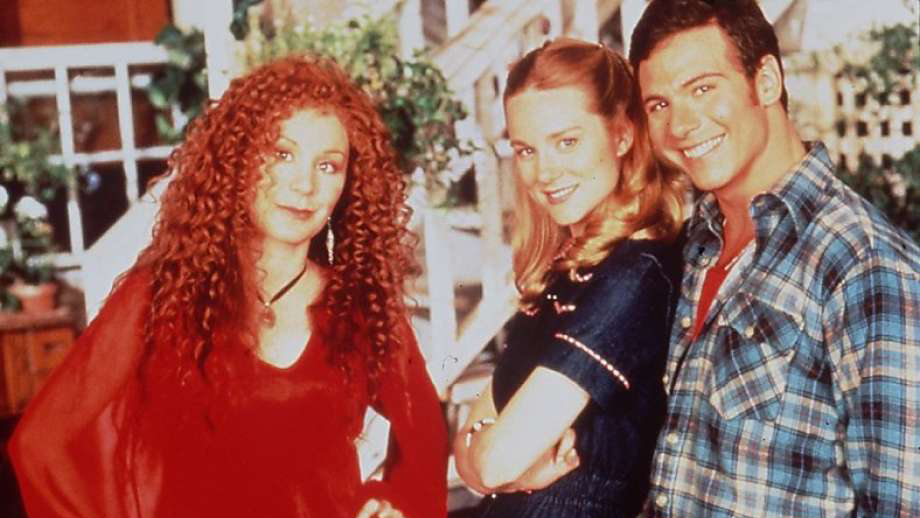Nice Above Fold - Page 1026
Gingrich wants to 'zero-out' federal funding to CPB
House Speaker-designate Newt Gingrich said on his weekly cable TV show last week that he wants to “zero-out” CPB funding this year. Remarks by Gingrich (R-Ga.) and new Senate Commerce Committee Chairman Larry Pressler (R-S.D.) fit perfectly into a dire scenario described in newspaper columns by commentators from Linda Ellerbee on the left to New York Post critic John Podhoretz on the right. Anticipating a coming legislative struggle, presidents of the public broadcasting’s national organizations have joined a task force convened by CPB President Richard Carlson. The leaders aim to “generate a full positive and informative picture of … what public broadcasting does and what it is that CPB funding buys,” said CPB spokesman Michael Schoenfeld.Orlando Bagwell: History-teller takes his craft into new realm
In many ways, Orlando Bagwell’s work announced his arrival as a notable creative talent years ago, when he and a handful of mostly inexperienced, young producers collaborated with Henry Hampton on Eyes on the Prize, the civil rights series that made television history in 1987. The opportunity to work as a member of Hampton’s team “changed my whole life,” Bagwell recalled. A young father who made his living primarily as a cameraman for public broadcasting stations and producers, Bagwell had come to believe that path would take him through life — until Hampton offered him the chance to produce and direct his own films on the civil rights movement.Native American net to launch next month
Indian country’s first satellite radio network is set to launch Oct. 31 with a weekday hourlong anthology of native programming from producers around the country. Supported by a 27-month, $459,000 grant from CPB, American Indian Radio on Satellite (AIROS) will link about 25 tribal stations in 10 states — many on reservations where radio is the sole telecommunications service. AIROS directors see the network as a first step toward an ambitious goal: building and linking stations on 250 Indian reservations. “It’s historic,” says Susan Braine, an Assiniboine Sioux, who has been the network’s one-woman staff since January. “It gives us the ability to communicate with each other in a way mainstream America has taken for granted — has used and abused!
At 10, Station Resource Group has more for Tom and Terry to do
You seldom hear that members of an association are voluntarily doubling their dues, but that’s about what the Station Resource Group is doing. Ten years after an informal group of station managers, the Dallas 15, hired Tom Thomas and Terry Clifford, the stations are raising their commitment and buying more of the consultants’ time. When Thomas and Clifford return home from last weekend’s annual SRG retreat — Aug. 18-22 in Park City, Utah — they’ll bring back a “to do” list and authorization to spend full time on it. Until now, SRG has taken about two-thirds of their time, Thomas estimates.Arts on public television: signatures of past, present and generations to come
Pulitzer Prize-winning playwright Wendy Wasserstein wowed a lunchtime audience at the Public Television Annual Meeting in June 1994 with her personal testimonial for public TV, relating her experience in terms far more vivid than the bland, generic phrases usually used to describe and defend the medium. Wasserstein received the Pulitizer as well as a Tony and other awards for her play The Heidi Chronicles in 1989. From the podium at the PBS conference, Wasserstein looked out on a vast dark room full of noshing broadcasters. When WNET invited me to speak to this intimate little luncheon in Orlando today, I jumped on a plane because I had nightmare visions of an imminent merger, and Donald Duck and Mickey Mouse hosting the MacNeil/Lehrer Report and Charlie Rose opening his show by singing, “Be my guest, be my guest .Court backs NTIA in Fordham case
When the new administrator of the National Telecommunications and Information Administration drew a “bright line” against equipment grants to a station that broadcasts a weekly religious service, that was okay with the Constitution, a federal judge has ruled. Larry Irving’s decision to make WFUV-FM ineligible for NTIA grants was “within the bounds of the law,” said Judge Charles R. Richey of the District Court for Washington, D.C., in a summary judgment June 29 [1994]. WFUV’s long struggle with NTIA took an unexpected turn last year when Irving, a new Clinton Administration appointee, reversed a previous NTIA ruling and told the Fordham University station that it was ineligible because of the Mass that it airs every Sunday morning.
Goal for Ready to Learn: engage kids and parents
On July 11, PBS begins beaming its long-anticipated Ready to Learn service to 11 pilot stations, embarking on what planners acknowledge will be a bumpy journey toward better TV for early childhood learning. What comes off the bird will essentially be an expanded, repackaged version of the existing children’s service that, with the help of new educational break messages, will offer a learning-friendly environment for kids. Off-air, outreach activities will target the audiences most critical to the task of preparing children for school–parents, teachers and child-care providers. The on-air and off-air prongs of public TV’s Ready to Learn strategy are scaled-back versions of proposals that PBS floated at last year’s annual meeting.Commentaries from prison nixed, but —
NPR’s decisions to air, and then not to air, Mumia Abu-Jamal’s death-row commentaries might yet take another turn. The network is committed to airing prisoners’ voices — perhaps Abu-Jamal’s, in a form different from the stand-alone commentaries originally planned, NPR Vice President Bill Buzenberg said Wednesday. “I see this as a decision to pull back” and “postpone,” he said. “We’ll make other editorial decisions down the road.” The silence from prisons allows a public hysterical about crime to maintain its stereotyped image of prisoners and not think about them as complex human beings, says Sussman. The NPR-distributed Fresh Air interview program, meanwhile, may hire an inmate commentator (separate story below).FDR defenders enlist TV critics to refute Holocaust film
Weeks before the debut of an American Experience film on the U.S. response to the Holocaust, defenders of President Franklin Roosevelt undertook a quiet campaign to influence and later discredit historical analysis presented in “America and the Holocaust: Deceit and Indifference.” In the disturbing film, aired April 6, 1994, producer Marty Ostrow argued that the Roosevelt Administration knew that the Nazis were systematically slaughtering Jews and followed a policy of not rescuing them. The critics’ complaint, in the words of William vanden Heuvel, president of the Franklin and Eleanor Roosevelt Institute, was that the film was “one-sided and grossly unfair, indifferent to the truth and deceitful in concept.”Coming of public radio to rural areas can be rough on both listeners and broadcasters
With about 90 percent of the population covered by its signals, public radio has reached all the ”easy” regions and is now filling in the gaps, usually in less-populated areas. Even when there’s money to add repeating transmitters, however, there are often technical glitches. The furor has died down somewhat in recent weeks, but when public radio first came to Chillicothe, Mo., in August 1993, hundreds of people wanted it to go back where it came from. In an area where households without cable were accustomed to picking up Kansas City Royals games and other programming on weak signals from TV stations 70 miles away, the new 100 kw FM signal was so much closer that it blasted the ballgames right off the tube.'The difference is that public TV serves a country, not a market'
This article is based on remarks by Marshall Turner, then chair of the CPB Board, at the board’s Jan. 27, 1994, meeting. Turner is an engineer and partner in the San Francisco venture capital firm of Taylor and Turner Associates and a longtime board member of PBS and KQED-TV/FM. Some say that the advent of new media — in particular, the challenge of cable television — has decreased the need for public broadcasting and its partial federal support. The opposite is true. Such suggestions miss the point of public television’s enduring potential. Our opportunities to serve the American public are growing as a result of changes in the broadcasting environment.With 'Tales of the City," public TV earns extremes of scorn and praise
With issues of censorship, decency and sexual mores swirling around it, 'Tales of the City' generated quite a few tales of its own.Ervin Duggan hired from FCC to lead PBS
As PBS’s fourth president, FCC member Ervin S. Duggan, 54, will take the lead of public TV at a time when momentous developments seem near. The field’s biggest ventures beyond single-channelhood are just ahead, along with the high promise, high cost and high-definition of digital technology. And the stations, at their fall planning meeting in mid-November, appeared ready to begin talking seriously about restructuring for that future. Good thing that Duggan enjoys “that feeling of flying out off the cliff, and floating, and testing my wings,” as he remarked Dec. 1 [1993], at the press conference where his election was announced.Fordham station sues for PTFP grant eligibility
Reportedly denied eligibility for a federal equipment grant because it carries one church service a week, Fordham University’s WFUV-FM has sued the Commerce Department for relief. Both the university and the Commerce Department’s Public Telecommunications Facilities Program (PTFP) apparently use First Amendment arguments to justify their cases. The Jesuit university says Commerce is violating its First Amendment right of free speech as well as the Communications Act, which it says prohibits government control of program content. And PTFP’s overseer, new Assistant Secretary of Commerce Larry Irving, reportedly believes that awarding equipment grants to stations with religious programming would undermine the church/state separation required by the First Amendment.History-makers tour new archives
The old-timers wandered curiously among the shelves, munching cookies and poking into file boxes, looking casually for their footprints in the history of public broadcasting. It was the concluding field trip of this month’s Public Broadcasting Reunion [related article] — a bus ride from Washington to nearby University of Maryland at College Park, where the new National Public Broadcasting Archives is open for business. Donald R. McNeil, the founding director, and Thomas Connors, his designated successor, showed off a facility that already has: 2,500 shelf feet of corporate records from CPB, PBS, NPR and other organizations; 360 shelf feet of personal papers and dozens of oral histories of the field; 5,600 audio tapes from the National Association of Educational Broadcasters, WAMU-FM and WETA-FM; and 3,000 videotapes from PBS, WETA-TV, Maryland PTV and other sources, among other things.
Featured Jobs




